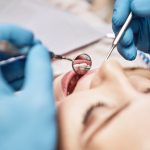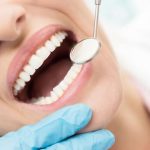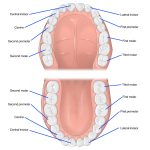Why Skipping Brushing Can Lead to Serious Dental Problems
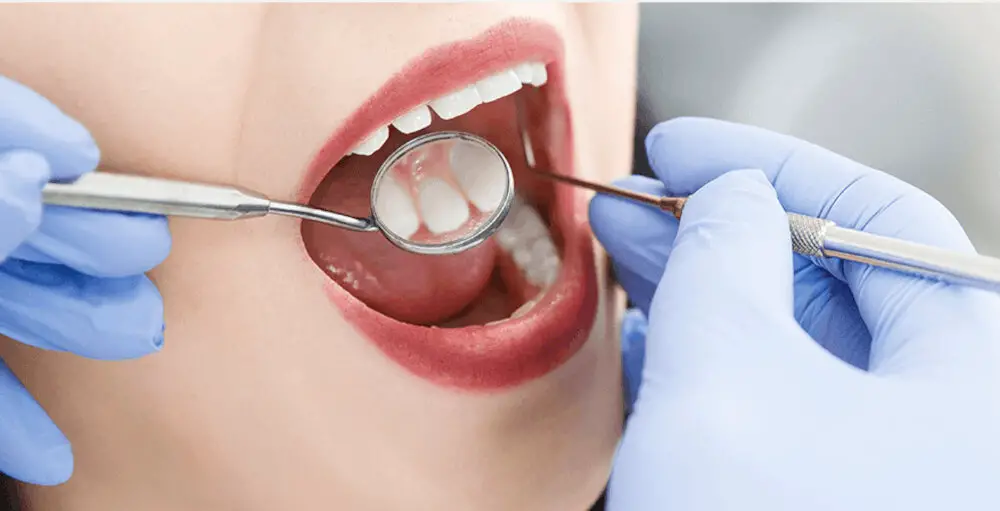
Oral hygiene is one of the most important aspects of maintaining good overall health. Many people might consider skipping brushing or flossing to be a harmless habit, but the truth is that it can lead to serious dental problems. The consequences of neglecting oral hygiene can range from mild tooth decay to severe gum disease, which can eventually lead to tooth loss. Moreover, poor dental health may also increase the risk of developing other health issues such as heart disease, diabetes, and respiratory infections. It is essential to understand that brushing is not just about keeping teeth clean and white. It is a crucial step in preventing the buildup of plaque and tartar, which are the primary causes of tooth decay and gum disease. When plaque is allowed to accumulate on the teeth and gums, it can cause inflammation, irritation, and eventually lead to infection. Skipping brushing or flossing can also allow harmful bacteria to multiply in the mouth, which can cause bad breath and increase the risk of cavities and gum disease. Therefore, it is important to make brushing and flossing a part of your daily routine to maintain good oral hygiene and overall health.
Dental hygiene plays a crucial role in maintaining oral health and overall well-being. Neglecting dental hygiene can lead to serious dental problems such as cavities, gum disease, and tooth loss. Poor dental hygiene can also contribute to other health issues such as heart disease, diabetes, and respiratory infections. Brushing twice a day, flossing daily, and regular dental check-ups can help prevent these problems and keep your teeth and gums healthy. Additionally, practicing good dental hygiene can improve your self-esteem and confidence by giving you a brighter, healthier smile. It is important to prioritize dental hygiene as a part of your daily routine to ensure a healthy and happy life.
The article, \Why Skipping Brushing Can Lead to Serious Dental Problems,\ will delve into the consequences of neglecting dental hygiene. Starting with an explanation of the basic anatomy of teeth, the article will detail how plaque buildup leads to tooth decay, gum disease, and even more serious health issues. It will also discuss the importance of regular brushing and flossing, as well as the potential risks of using improper brushing techniques. The article will conclude with actionable steps readers can take to maintain healthy teeth and gums, emphasizing the importance of preventive care and routine dental checkups.
The Consequences of Not Brushing
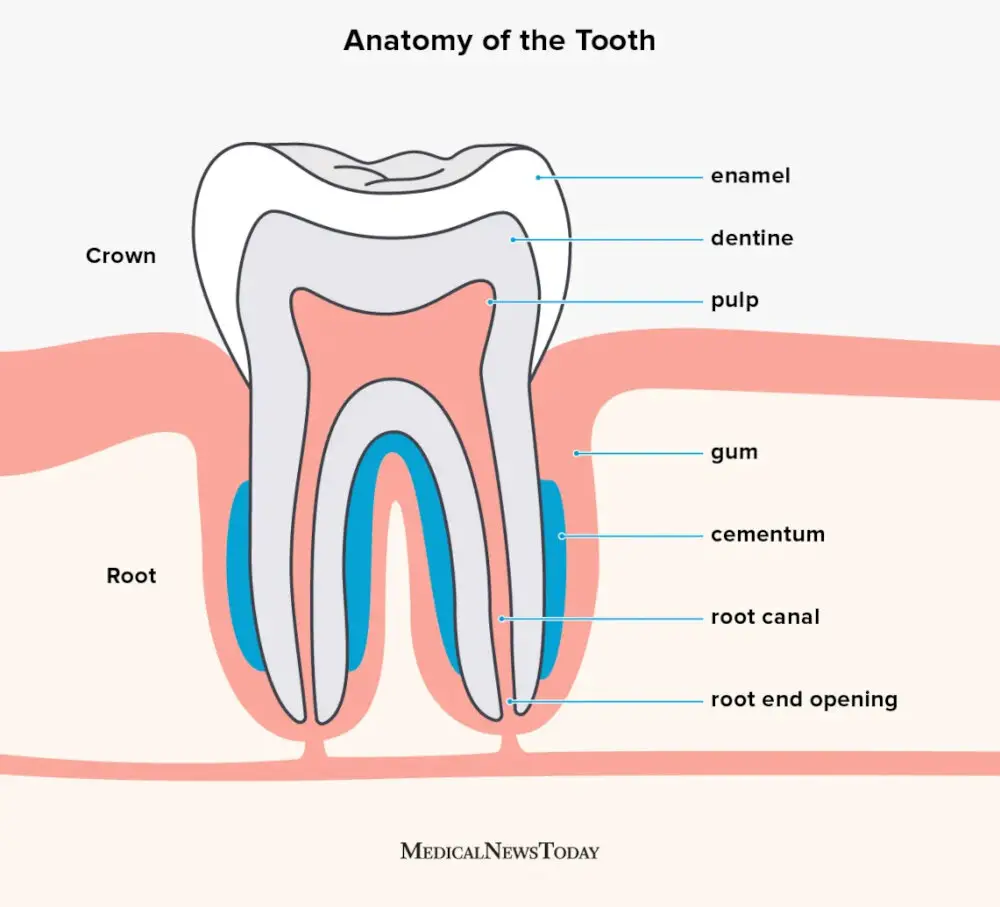
The consequences of not brushing your teeth can be quite severe and can lead to serious dental problems. When you don’t brush your teeth, plaque builds up on your teeth and gums. Plaque is a film of bacteria that forms on your teeth and gums and can cause tooth decay and gum disease. Tooth decay can lead to cavities, which are small holes in the teeth that can cause pain, sensitivity, and even tooth loss. Gum disease can cause inflammation, bleeding, and swelling of the gums, and can eventually lead to tooth loss. If left untreated, gum disease can even lead to more serious health problems such as heart disease and stroke. Another consequence of not brushing your teeth is bad breath, also known as halitosis. Bad breath can be embarrassing and can affect your social life and relationships. In addition, not brushing your teeth can cause staining and discoloration of your teeth. This can affect your confidence and self-esteem, and may even require expensive cosmetic dental treatments to correct. Overall, skipping brushing can have serious consequences for your dental health and can even affect your overall health and well-being. It’s important to make brushing a regular part of your daily routine to maintain good dental hygiene and prevent serious dental problems.
Neglecting to brush your teeth can lead to a host of dental problems, ranging from minor issues like bad breath to severe conditions such as gum disease and tooth decay. When you don’t brush your teeth, bacteria and food particles accumulate on the surface of your teeth and gums, forming a sticky film called plaque. If left unchecked, this plaque hardens and turns into tartar, which can only be removed by a dentist. As tartar builds up, it can cause your gums to become inflamed and bleed, a condition known as gingivitis. Left untreated, gingivitis can progress to periodontitis, a more severe form of gum disease that can cause tooth loss and other serious health problems. So, it’s imperative to brush your teeth regularly to maintain good oral health and prevent these problems from occurring.
Plaque buildup, cavities, and gum disease are all serious dental problems that can occur when proper oral hygiene is not maintained. Plaque is a sticky film of bacteria that forms on teeth and gums, and if left untreated, it can harden into tartar, leading to cavities and gum disease. Cavities are holes in the teeth caused by decay, and they can lead to severe pain and even tooth loss if left untreated. Gum disease, also known as periodontitis, is an infection of the gums that can cause bleeding, swelling, and even bone loss in severe cases. All of these issues can be avoided by brushing twice daily, flossing regularly, and visiting a dentist for routine checkups and cleanings.
How Brushing Prevents Dental Problems
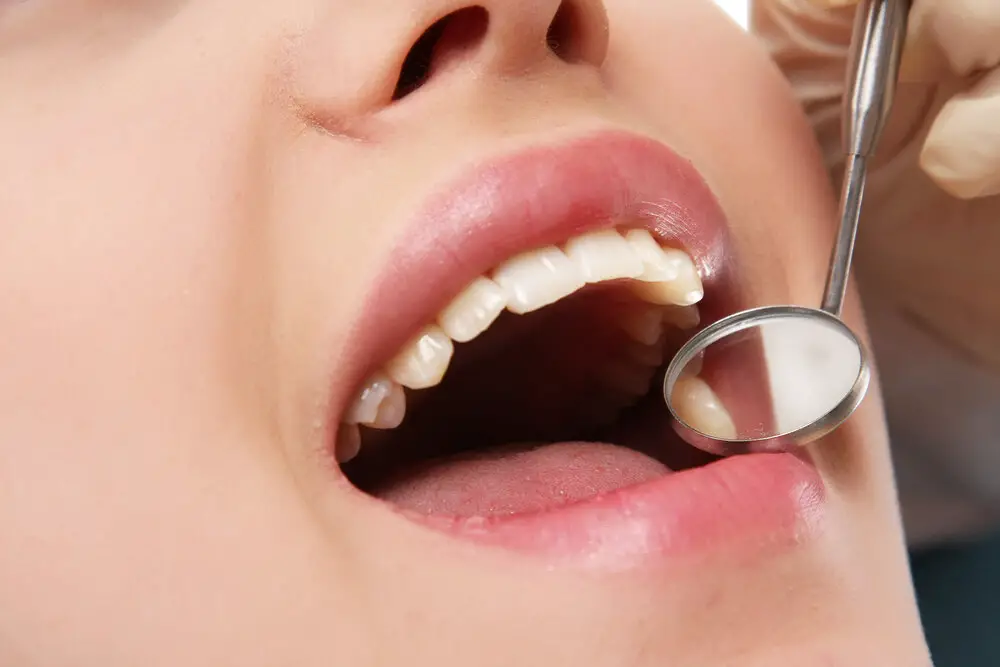
Brushing your teeth is an essential part of maintaining good oral hygiene. It not only helps to keep your teeth looking clean and bright, but it also plays a significant role in preventing dental problems. When you brush your teeth, you remove food particles, plaque, and bacteria that can cause tooth decay and other dental issues. Plaque is a sticky film of bacteria that forms on your teeth. If left untreated, it can harden into tartar, which can lead to gum disease. Brushing your teeth twice a day helps to remove plaque and prevent it from building up on your teeth. It also helps to freshen your breath and promote healthy gums. Skipping brushing can lead to serious dental problems, including cavities, gum disease, and tooth loss. When you don’t brush your teeth, plaque builds up on your teeth, which can lead to tooth decay. Cavities form when the enamel on your teeth is worn down by the acid produced by bacteria in plaque. Gum disease is another common dental problem that can result from poor oral hygiene. It occurs when plaque builds up on the gums, causing inflammation and infection. Over time, gum disease can lead to tooth loss. Brushing your teeth is one of the most effective ways to prevent these and other dental problems. By taking just a few minutes each day to brush your teeth, you can ensure that your smile stays healthy and bright for years to come.
Brushing teeth is crucial in maintaining good oral hygiene, as it helps to remove harmful bacteria and plaque. Bacteria in the mouth form a sticky film called plaque, which can cause tooth decay and gum disease if not removed. When brushing, the bristles of the toothbrush physically scrub the teeth to remove the buildup of plaque and bacteria. Additionally, toothpaste contains ingredients such as fluoride that help to kill bacteria and strengthen tooth enamel. By brushing twice a day and flossing regularly, individuals can effectively remove harmful bacteria and plaque from their mouths and prevent serious dental problems from developing.
Fluoride toothpaste has been proven to be highly beneficial for maintaining good oral hygiene. It is a mineral that helps to prevent tooth decay and strengthens the enamel. Regular use of fluoride toothpaste can reduce the risk of cavities and tooth decay. This is because fluoride helps to remineralize the teeth, repairing any damage caused by acid-producing bacteria. Additionally, fluoride can also reduce the amount of acid produced by these bacteria, making it harder for them to damage the teeth. Fluoride toothpaste also helps to prevent gum disease by reducing inflammation and promoting healthy gum tissue. Overall, using fluoride toothpaste is an important step in maintaining good oral health and preventing serious dental problems.
The Role of Flossing and Mouthwash

Flossing and mouthwash are integral parts of maintaining good oral hygiene. Brushing alone cannot effectively clean all the nooks and crannies between teeth where plaque and bacteria can accumulate. Flossing can remove food particles and plaque that brushing can’t reach, preventing gum disease and cavities. It is recommended to floss at least once a day, preferably before bedtime. Using a gentle back-and-forth motion, slide the floss between teeth and follow the curve of each tooth to clean the sides and gums thoroughly. Flossing regularly can also help prevent bad breath by removing odor-causing bacteria from the mouth. Mouthwash can also be beneficial in maintaining good oral hygiene. It can help kill bacteria and freshen breath, especially after meals or snacks when brushing and flossing may not be possible. However, it should not replace brushing and flossing as the primary means of cleaning teeth. Some mouthwashes contain alcohol, which can dry out the mouth and lead to further dental problems. It is best to use an alcohol-free mouthwash and follow the instructions carefully, swishing for at least 30 seconds before spitting it out. Incorporating flossing and mouthwash into your daily oral hygiene routine, in addition to regular brushing, can help keep your teeth and gums healthy for years to come.
Brushing is an essential part of maintaining good oral hygiene, but it is not always enough to keep your teeth and gums healthy. To achieve optimal oral health, it is important to incorporate flossing and mouthwash into your daily routine. Flossing helps to remove food particles and plaque from between the teeth and along the gum line, areas that a toothbrush cannot reach. Mouthwash, on the other hand, helps to kill bacteria and freshen breath. When used together with brushing, flossing and mouthwash work synergistically to remove plaque, prevent cavities, and keep your mouth feeling fresh and clean. Skipping any of these steps in your oral hygiene routine can lead to serious dental problems down the road.
Flossing and mouthwash are essential components of good oral hygiene. Flossing helps remove food particles and plaque from between teeth and along the gumline, reducing the risk of cavities and gum disease. It also promotes healthy gums and fresh breath. Mouthwash, on the other hand, kills bacteria that cause bad breath and cavities. It also helps reduce plaque and gingivitis, especially in hard-to-reach areas. Regular use of mouthwash can help improve overall oral health and prevent gum disease. Incorporating flossing and mouthwash into your daily routine, along with brushing, can help keep your teeth and gums healthy and prevent serious dental problems.
Tips for Maintaining Good Dental Hygiene
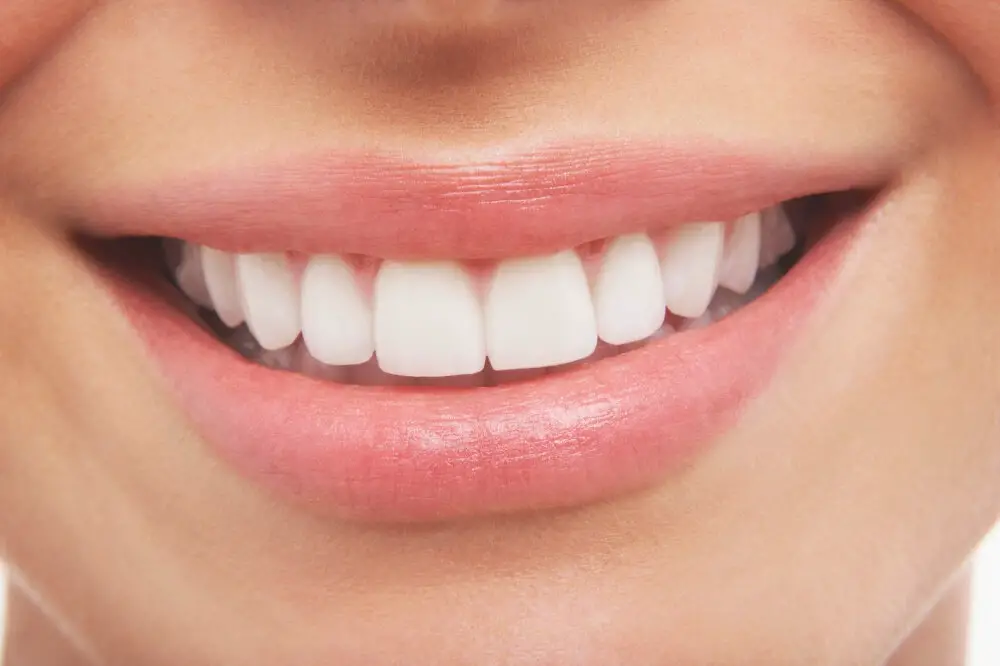
Maintaining good dental hygiene is essential for healthy teeth and gums. Brushing your teeth twice a day, flossing daily, and visiting the dentist regularly are key components of good oral hygiene. Brushing your teeth properly removes plaque and bacteria that can lead to tooth decay and gum disease. It is recommended to use fluoride toothpaste and a soft-bristled brush to prevent damage to your teeth and gums. In addition to brushing, flossing helps remove plaque and food particles between teeth and along the gum line, where a toothbrush cannot reach. Flossing also helps prevent gum disease and bad breath. Another important aspect of maintaining good dental hygiene is to watch what you eat and drink. Sugary and acidic foods and drinks can erode the enamel on your teeth and lead to cavities. It is important to consume these types of foods and drinks in moderation and to brush your teeth or rinse your mouth with water after consuming them. Additionally, smoking and using tobacco products can lead to stained teeth, bad breath, and gum disease. Quitting smoking can improve your oral health and reduce your risk of developing these problems. By maintaining good dental hygiene, you can keep your teeth and gums healthy and prevent serious dental problems.
Regular dental checkups are vital for maintaining good oral health and preventing serious dental problems. Dental checkups typically involve a thorough examination of the teeth, gums, and mouth, allowing dentists to identify early signs of dental decay, gum disease, and other oral health issues. Without regular checkups, these problems can go undetected and worsen over time, potentially leading to more serious dental issues that require more invasive and costly treatments. Additionally, regular checkups enable dentists to provide patients with professional cleanings and personalized oral hygiene advice, helping them to develop healthy habits that can prevent future dental problems. Ultimately, the importance of regular dental checkups cannot be overstated, as they are a crucial component of maintaining good oral health and preventing serious dental issues.
Maintaining proper brushing and flossing techniques is essential for good oral health. Brushing should be done twice a day, using a soft-bristled brush and fluoride toothpaste. It’s important to brush every surface of each tooth, including the front, back, and chewing surfaces, as well as the gumline. Flossing should also be done daily to clean between teeth and remove any food particles or plaque that brushing may have missed. When flossing, be sure to gently glide the floss between teeth and curve it around the base of each tooth to clean beneath the gumline. Proper brushing and flossing techniques can help prevent serious dental problems, such as gum disease and tooth decay, and keep your smile healthy and bright.
Maintaining good dental hygiene is crucial for healthy teeth and gums. It involves a combination of regular brushing and flossing, as well as visits to the dentist for check-ups and cleanings. To achieve optimal dental health, it’s important to brush twice a day for at least two minutes each time, using a fluoride toothpaste and a soft-bristled toothbrush. Flossing should also be done at least once a day to remove any food particles and plaque that may have accumulated between the teeth. In addition, avoiding sugary and acidic foods and drinks can help prevent decay and erosion. Finally, regular dental visits can catch any potential issues early on, allowing for prompt treatment and preventing serious dental problems from developing.
Dental hygiene is crucial for maintaining healthy teeth and gums. Neglecting proper oral care can lead to serious dental problems such as cavities, gum disease, and even tooth loss. Brushing twice a day, flossing regularly, and visiting the dentist for routine check-ups are essential in preventing these issues. Poor dental hygiene can also have negative effects on overall health, as it has been linked to heart disease, diabetes, and other health problems. It is important to prioritize dental hygiene and make it a part of your daily routine to ensure a healthy and happy smile.
Neglecting regular brushing, flossing, and dental checkups can result in severe dental problems. It is crucial to emphasize the importance of maintaining proper oral hygiene to prevent cavities, gum disease, and other dental issues. Brushing twice a day with fluoride toothpaste, flossing daily, and visiting the dentist every six months can prevent plaque buildup and identify any dental problems early on. Failure to follow these basic dental practices can lead to painful and costly treatments such as root canals, extractions, and implants. Therefore, it is essential to prioritize oral health and incorporate these habits into a daily routine to maintain a healthy and beautiful smile for a lifetime.
Conclusion
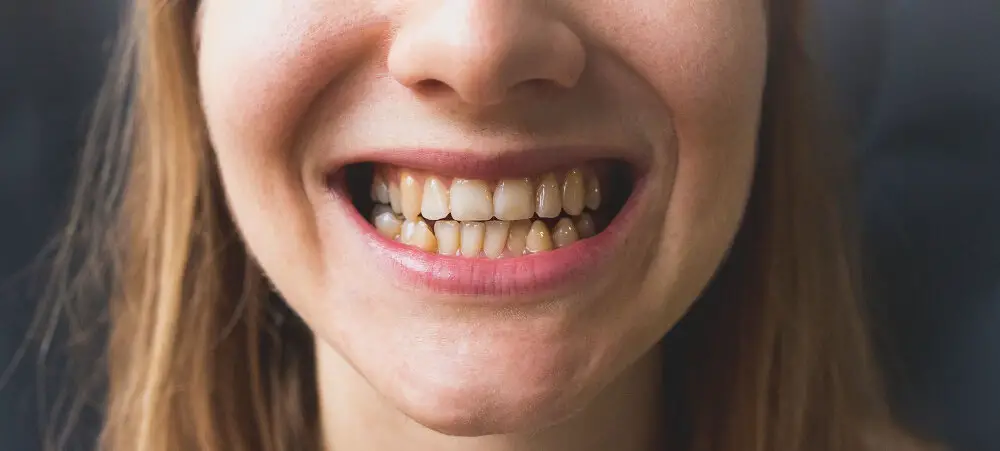
In conclusion, neglecting to brush your teeth regularly can have serious consequences for your dental health. The accumulation of bacteria and plaque can lead to tooth decay, gum disease, and even tooth loss. Additionally, skipping brushing can result in bad breath and a less than appealing smile. It is imperative to prioritize oral hygiene as a crucial aspect of your overall health and wellbeing. Consistent brushing and dental check-ups can prevent these issues and keep your teeth and gums healthy and strong. Remember, a healthy smile is not only aesthetically pleasing but also essential for maintaining good health.

